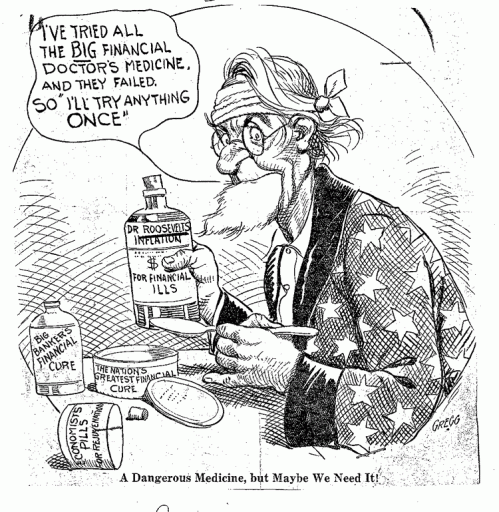Below are fifty questions that I would like to see asked of the panel of candidates at the so-called "debates."
There could be many more, but this is a start.
1 (a.)All of you who use an income tax preparer, raise your hand.
(b.) If you (who raised hands) can not prepare your own taxes, how do you propose to run the country?
2. If you can not prepare your own tax returns, is it reasonable to hold the average citizen criminally liable for errors?
3. How do you expect to understand bills sent to you for your signature if you can't fill out a tax return?
4. At what point will the national debt be "too high"?
5. What is the case law giving the federal government power to prohibit the possession of drugs?
6. Assuming all of you are against waste, fraud and abuse; what specific programs and agencies do you propose to eliminate?
7. Should any federal departments or programs ever be eliminated, if so, which ones?
8. How many military bases does the U.S. maintain in foreign countries?
9. How many do you propose to close?
10. How much does it cost to keep the above-mentioned bases in operation?
11. If a state chooses to nullify a federal law, what action would you take?
12. If a state were to secede from the union. what action would you take?
13. Do you support repeal of laws compelling acceptance of government-issued money [legal tender laws]?
14. Has the US ever fought an enemy who was honorable? Which ones?
15. Were the attacks on the Marine barracks in Beirut, or the USS Cole, terrorist attacks or attacks on a legitimate military target?
16. What is the maximum amount - not percentage - that anyone should have to pay in taxes?
17. Do you support abolition of the income tax?
18. Why is discrimination prohibited, but is the basis for a progressive tax?
19. Is simulated drowning, or, "waterboarding" torture? If not, define the word torture.
20. Do you support transferring federal lands to the states in which they are located?
21. Hawaii has a large secessionist movement. Do you support Hawaii's right to self-determination?
22. Do you support and would you continue the War On Drugs?
23.(a.) Can you explain the difference between a war, conflict, police action, and kinetic military action?
(b.) Are there other types of military actions other than these?
24. Do you support government control of schooling?
25. In your opinion, who was the worst president, and why?
26. In your opinion, who was the best president, and why?
27. In your opinion, what was the worst decision by the Supreme Court?
28. Do you support government control of the internet?
29. Do you support turning airline security over to the airlines?
30. How can anyone be said to be free when the government has a prior claim on all he earns?
31. Is it possible to maintain good government when politicians lie regularly?
32. Will you pledge to resign from office if it can be shown that you lied to the people?
33. If you are elected, will you pledge to release all secret information regarding government crimes or unexecuted planned crimes against citizens, such as MK ULTRA, Tuskegee Experiments, Operation Northwoods, Guatemalan Syphilis Experiments, CDC Measles Experiment, etc.?
34. When a person's moral beliefs are in conflict with a legislative edict, what should he do?
35. Do you favor compelling citizens to violate their conscience?
36. How does compelling someone to violate his conscience differ when we do it, from when the Communists, Nazis or Fascists did it?
37. If the federal debt ceiling can be raised, what is it for?
38. Does the Constitution give the President exclusive power over foreign policy? (No)
39. Do you consider people such as Daniel Ellsberg, Bradley Manning and Mark Felt, heroes or traitors?
40. If elected, would you pledge to return to the practice of reporting to congress the state of the union by letter instead of speech?
41. On your second day in office, what agencies and programs do you intend to propose for elimination?
42. What would you do if China, Iran, Russia, Cuba, Venezuela, Libya or other countries turned isolationist?
43. Should the US work to reduce its stockpile of weapons of mass destruction? If not, what countries should possess such weapons?
44. Is it immoral to take money by intimidation from one person and give it to another? What if a law says it's OK?
45. Explain the difference between law and legislation.
46. Should people be free to ingest substances without the approval of government? If not, why is government approval needed and how does it change the act?
47. How small does a business have to be before it can't expect a government bailout in bad economic times?
48. Would you support the abolition of the Bureau of Indian Affairs and leave the Indians alone?
49. Would you seek the endorsement of the Commissioner of the Internal Revenue Service and perhaps have ads featuring this person or campaigning with him?
50, Given the choice of two evils, should a person abstain from voting or vote for the lesser evil?



